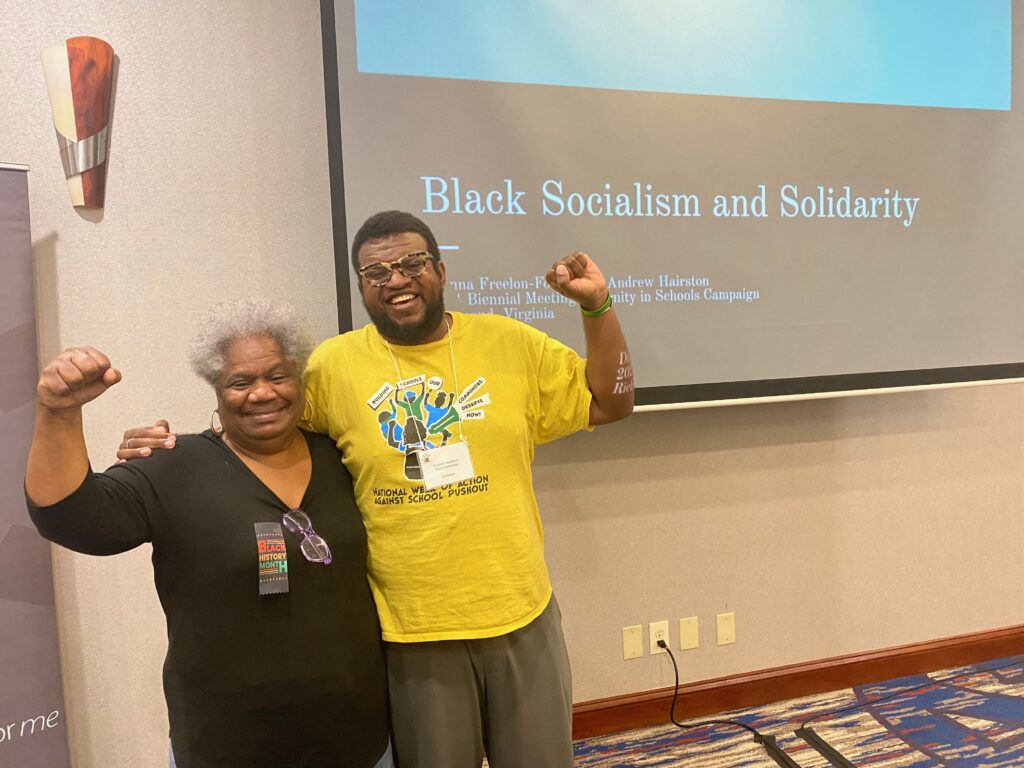
Originally Published at Uncle Drew’s Substack
April 22nd, 2024
I took a flight to Richmond last Wednesday for the biennial meeting of the Dignity in Schools Campaign (DSC). As I shared in my reflection on my trip to Jackson, Mississippi, DSC allowed me to focus my efforts as a young attorney and carve out a deeply appreciated niche in the work. Add the fact that this was the largest in-person meeting of DSC since the coronavirus pandemic, and then you can surmise how excited folks were to be together in Richmond.
Ahead of my travels, I created a presentation on Black Socialism and Solidarity with the Honorable Dianna Freelon-Foster of Grenada, Mississippi. Mama Dianna served as the first Black woman mayor of Grenada, and she has been an active participant in Black liberation struggles since the Civil Rights Movement. When we met in 2017, we bonded as we recognized that she knew some of my relatives; in the past seven years, it has been my honor to learn from her and work alongside her in the South. We are two Black socialists who demonstrate the power of intergenerational organizing.
We began our discussion with some overarching definitions of socialism – through our socialist organizing, we seek a true public infrastructure, where housing, education, healthcare, utilities, social services, and public spaces are available to all. We talked about our desire to have workers own the means of production at their places of employment, and we pointed to worker-co-ops and the current expansion of unions across the U.S. as examples. We uplifted our fights for abortion access for all and queer & trans liberation as critical components of the fight. We chatted about building & sustaining mutual aid networks on the road to socialism in the United States. In our socialist future, police and prisons will be obsolete relics of the past.
I created a slide on Peter H. Clark, a man widely recognized as the first Black socialist in America. Across his life from 1829 to 1925, he witnessed and waged similar battles as the ones adopted by Black socialists in the twenty-first century. For example, during Reconstruction, he squarely observed that white resentment grew against Black workers who were striking for better wages. As someone who has unsuccessfully run for office, I appreciated that Peter H. Clark never held political office himself – and largely linked his destiny to that of millions of Black people across the country. As Black socialists in our current time, Mama Dianna and I reflected on how the pervasiveness of white supremacy hinders a mass multiracial, working class movement from fully getting off the ground in the United States.
We moved to a dialogue about the critical relationship between Black feminism and socialism. Past and present organizers like Dr. Angela Y. Davis, Claudia Jones, Mary Helen Washington, and the women of the Combahee River Collective offer a blueprint for organizing in this tricky, modern landscape. Across time, Black women have created the socialist community infrastructure that we hope to expand to communities across the country. It is important to name this truth and offer credit where it is due.
Our conversation widened to cover the very real challenges that face us down as Black socialists. We spoke of the legacy of McCarthyism and the Red Scare, and we nodded to the fact that 75 years is recent history in the grand human narrative. I uplifted how impoverished countries like Cuba and Venezuela – despite being placed in their positions by American meddling and unwarranted intervention – are largely associated with socialism in present times. Although it was mentioned previously, we had to once more lift up that the foundations of white supremacy that built America continually thwart the far-reaching potential of this movement.
From there, we discussed our recent action in support of Darryl George in Texas. Mama Dianna and over a dozen other organizers drove from Mississippi to Texas in February to stand in solidarity with Darryl. I played a clip from Mama Dianna’s reflections on the Texas Talk Back, and the room held on to her every word. During a protest, a white woman yelled at her to go back to her side of town. This racist missive triggered meditations on her childhood, where she faced conditions similar to the Little Rock Nine as she went to school and fought for equal educational opportunities in Grenada.
We passionately conversed with folks in the room for several minutes, and our time quickly wrapped up. This presentation both served as the culmination of a good deal of study & practice and a launching pad for the deep organizing that we intend to take on in the coming decades. A few thoughts that I hope to explore more – that I didn’t get to in Richmond – concern my belief that modern Black churches provide many practical components on the road to socialism and that people who struggle with substance use should not in any way cast aside in socialist organizing. The infrastructure of a church could offer relief for folks experiencing homelessness, for example, and people who use can offer critical lessons in harm reduction and non-carceral responses to violence.
I thank Mama Dianna for her mentorship and solidarity. I look forward to what we will build as Black Southern socialists in the coming decades & beyond.


